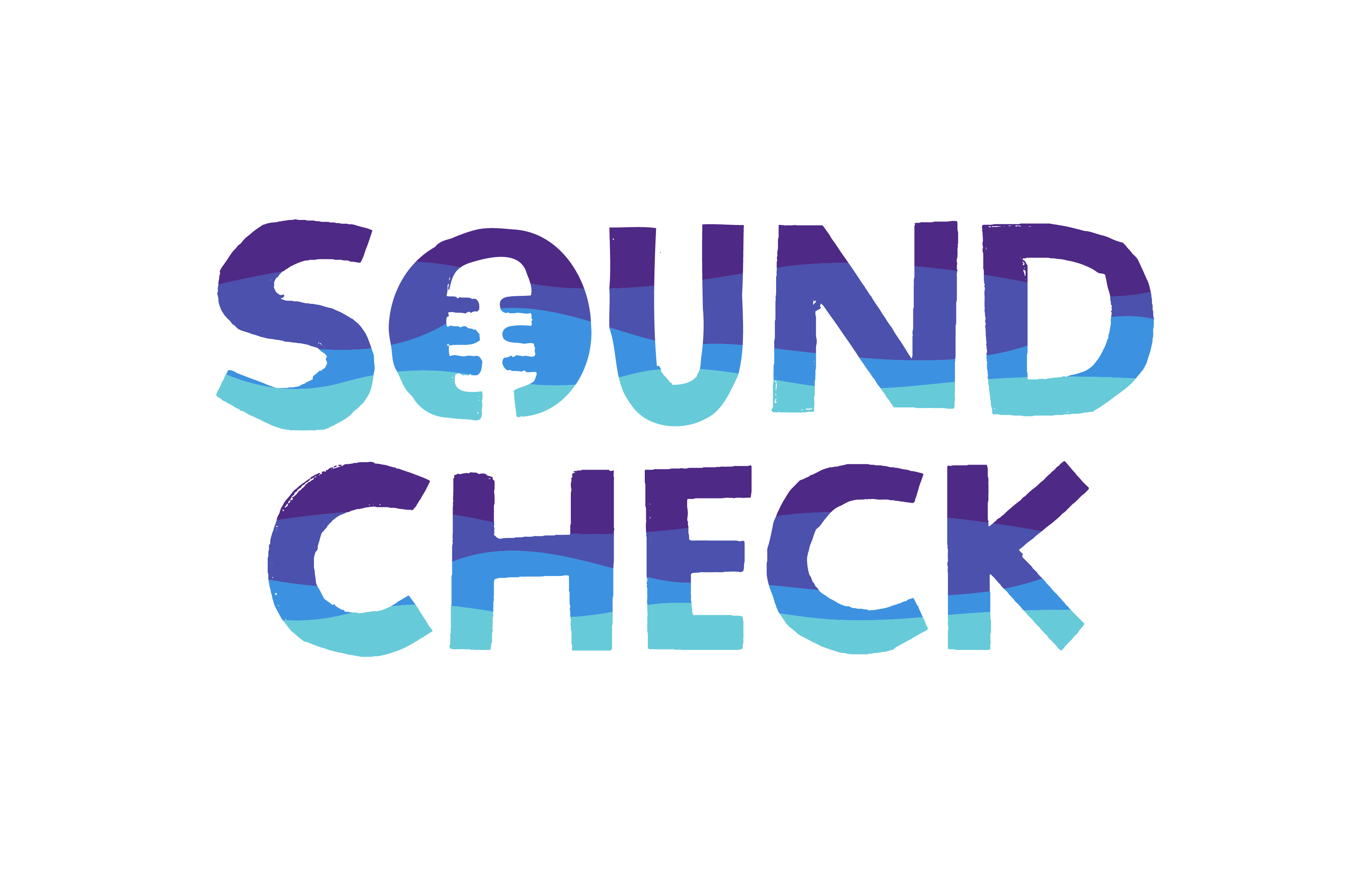Six Australian musicians talk about how they keep their mental health in check.
Trigger warning: mention of mental health issues, anxiety, depression, suicide, suicidal ideation
A lot has happened over the past six weeks. Victoria’s lockdown has eased, our social lives have emerged from hibernation, masks are no longer mandatory outdoors and the 25km travel limit has gone.
While things are looking up and we all have a reason to celebrate the state’s suppression of COVID-19, important conversations around mental health and wellbeing have still been taking place.
Over the past month-and-a-half, six musicians have stepped forward to share their mental health stories as part of Mushroom and VicHealth’s SOUND CHECK initiative. They’ve spoken candidly about their own experiences and offered coping mechanisms, advice and things they wish they’d known sooner, in the hopes of encouraging more people to do the same.
From knowing when to take a break from work and finding people who support you, to learning how to open up and developing a toolkit of coping strategies, these are just some of the lessons we’ve learnt from SOUND CHECK.
Lesson one: sharing your story can help others feel less alone
For those in the midst of mental health struggles, it can be hard to feel like anyone understands you or knows what you’re going through. You can feel alone and isolated, but statistically speaking, you’re actually in the company of almost three million Australians who experience the same thing annually.
For Tasmanian-born, Sydney-based singer Jesse Teinaki, revisiting the low point of his life is a painful but necessary task in normalising the dialogue around mental health.
“I love talking about strength and resilience and creating vibes and creating light, but I also like to bring up the harder things,” he explained. “One of the things I can do as a service to people is to let people know that they’re not alone.”
Teinaki went through a period of severe depression and anxiety where he stopped turning up for work or seeing friends. He felt that he couldn’t speak out about how he was feeling, and this only fuelled the spiral further.
“I think that’s where my depression and my darkness came from, it was from not opening up,” he said. “That’s why I’ve kind of made it my mission to try and help as many people as I can.”
“I’ve been from contemplating suicide to now trying to spread as much light as I can across the world, and I know that everyone else has that in them as well.”
Lesson two: surround yourself with people who love and support you
Some people turn to friends, some to family and some to a psychologist, but regardless of where you get your support, the most important thing is having it.
There are times in life when we’re strong enough to get through things alone, but for the most part we all need someone else to help push us in the right direction, hold our hand when we’re struggling, or just listen when we’re having a bad day.
For Melbourne-based singer Merpire, having a strong support network of friends was the catalyst to getting on top of her mental health and helping her realise the steps she needed to take to get there.
“These friends I started having were so open with their feelings, even that, as lovely as it was, they showed me so much love so early on, hugs, telling each other we love each other, we’re proud, at first that was something I had to face because I didn’t feel worthy of that friendship,” she said.
“That’s when I had to go see a psychologist, and a couple of them [friends] said ‘I’ve been seeing a psychologist for ten years’ or ‘I grew up seeing a psychologist’ and they were just kicking goals in their lives.”
“They had the tools to get through whatever they were facing, and I wanted those tools.”
Drawing on her own experience with depression, anxiety and feelings of loneliness, Merpire stressed the importance of talking things through with people you feel comfortable with and not underestimating the power of connection.
“It was only through talking to other friends and learning how common what I was thinking was, that the shame and taboo around it was taken away,” she said.
“I think it’s so important to be open about mental health and wellbeing because it’s such a shared feeling.”
Lesson three: this too shall pass
Shaking off the black dog when it’s nipping at your ankles is easier said than done. Dealing with mental health issues can feel like swimming through cement or banging your head against a brick wall – slow, laborious and never-ending.
It’s a process, and rarely a straightforward, easy one, but when coming out the other side you learn that the storm can, and does, pass.
The Teskey Brothers’ Brendon Love knows this well, having battled depression on multiple occasions throughout his life and is open to sharing his struggles in the hopes of reminding others that there is a light at the end of the tunnel.
“I think the biggest thing that I’ve learnt in the last two years is just having the knowledge that the storm passes,” Love explained in his SOUND CHECK instalment.
Love has battled depression at various times in his life including high school and while recording The Teskey Brothers’ 2019 album Run Home Slow, but he’s learnt that even the darkest periods pass.
“The hardest thing for me was reaching out and asking for help,” he said.
“Breaking through that was a big thing for me, but then once doing it understanding that ‘wow, there’s a lot of people that care about me’ and that goes a long way as far as building resilience to when times get tough.”
Lesson four: know when to give yourself a break
Between work, study, school, seeing friends, staying in touch with family and pursuing your creative interests, it’s easy to lose sight of looking after yourself.
Competitive industries such as music, in particular, mean that there’s a constant pressure to create new music or tour to stay relevant, resulting in cycles of stress, anxiety and burn out.
Self-care is more important for your mental health than you might think and that doesn’t just mean face masks or long baths, but knowing when to give yourself a break.
This was the advice from Zimbabwean-born, Melbourne-based hip hop artist Francoistunes, who’s learnt that staying on top of your mental health is more important than slaving away at your craft.
“Being an artist there’s always the expectation to be like hitting it every time, a higher target or higher thing. But it’s unrealistic pressure, because that’s stressful. It makes you work under stress and not be as creative because it shuts you in,” he said during SOUND CHECK’s fourth episode.
“Usually I take a step back. If whoever I’m working with puts pressure on me, my manager or my label or whatever, I’m just like, ‘Hey, mentally right now I’m not in the right space to be on the run’ because I need that little break.”
Lesson five: teach yourself to open up
Sometimes talking about how you’re feeling is hard and it can be difficult to find the right words. It’s a terrifying thing to be vulnerable with people, but it can be incredibly healing, too.
This doesn’t always have to be in the form of one-on-one, sit down conversations, and for many artists like Teischa, music is a way to express what you’re sometimes too scared to say.
“I think coming into the industry it was easier for me to be this more mysterious, more uptight distant person to kind of put that security blanket around myself,” the singer told SOUND CHECK.
“I think a lot of artists feel that it’s easier to be a bit more removed than to just be completely open and honest because once you’re in that vulnerable position it can be so much more brutal.”
Now, the young Fremantle artist writes music that can sometimes “feel pretty heavy”, but she finds healing in the honesty of her art.
“A lot of what I write about comes from a pretty personal place,” she explained. “I think that’s why it’s such a therapeutic thing for me, making music.”
“I love to fully dive into those moments when you’re feeling down and when you’re not feeling great, not just running in the opposite direction and pretending that doesn’t exist.”
“The more I bury shit the more it just snowballs into issues that are so much bigger than they need to be, so the first thing for me is just being open.”
Lesson six: develop your own coping strategies
In the same way that we all experience mental health differently, we all cope with it differently too. What works for one person might not work for another, so it pays to build a toolkit of coping strategies you can turn to when you’re feeling down and out.
For ARIA Award-winning singer Adrian Eagle, this sometimes means taking a step back from constant connection and turning back to nature.
“What helps me these days is just having time to clear my mind,” Eagle shared during the final instalment of SOUND CHECK.
“If it is still listening to something or completely unplugging and being completely absorbed with the earth, connecting to the earth in some way.”
The Adelaide-born, Melbourne-based artist admitted that during his really dark times, “It was a battle between myself and my mind”, but has also learnt how to put his mind towards positive, creative pursuits.
“It’s good to give yourself goals and also envision exactly what you wanna do,” Eagle offered.
“That’s what I’ve been doing in this lockdown, is envisioning exactly what I want to project in the next art. What in my life do I want to talk about, what haven’t I talked about, so that’s how these new songs have come about.”
So, what next?
SOUND CHECK has opened a discussion around mental health and wellbeing, but that doesn’t have to end now that the series is over.
The tools, tips, advice and lessons given by each artist are things you can refer to when developing your own coping strategies, seeking support from friends or approaching a conversation with someone you sense might be struggling.
Managing your mental health and wellbeing can be overwhelming and exhausting, but you don’t have to go through it alone. If there’s anything to take from this series it’s that everyone has their own unique experiences, but in sharing these with others we can lighten our individual load.
Whether you turn to friends, family, a partner, a psychologist or a dedicated helpline, the most important thing is to speak out and encourage others to do the same.
In normalising these conversations we create a space in which mental health no longer falls through the cracks, gets left to the wayside or is shrouded in shame and taboo.
Instead, we begin to treat the problem for what it is, a health problem, and offer people who struggle the same support that we would for a person with any physical illness.
Check in with yourself, check in with others, and even though its not always so easy, try to remember that the storm will pass.
Never miss a story. Sign up to Beat’s newsletter and you’ll be served fresh music, arts, food and culture stories three times a week.

